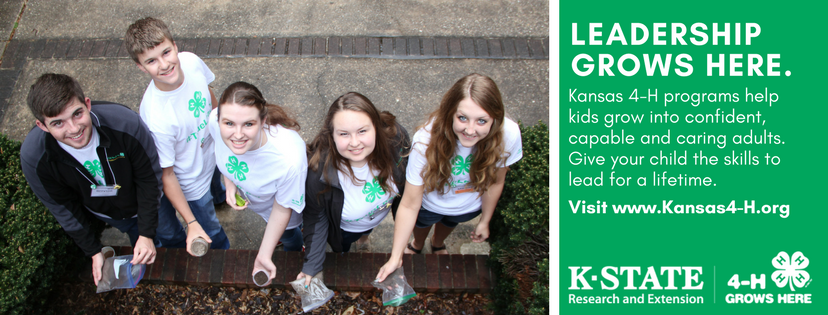“Chasing Clovers”
By Patsy L. Maddy
Twin Creeks Extension District, 4-H Youth Development Agent
Decisions! Life is all about choices! According to Dr. Tim Elmore, founder of Growing Leaders, Americans have valued freedom since the beginning of our nation. We believe the “land of opportunity” implies we get to choose precisely how we live our lives. We love options!
As our freedom of choice has expanded, a downside has resulted. Hundreds of thousands of choices are made every year. Dr. Elmore referred to his local supermarket.
- 29 different types of loaves of bread, not including rolls and muffins.
- Just over 150 different salad dressings to choose from.
- Just under a thousand different kinds of toothpaste available.
As a type one diabetic, Dr. Elmore discovered that the average diabetic makes 400 more decisions a day that the average person!
What have all of these choices done to our society? Even though I personally can remember just three television networks available and a phone that was only used to make phone calls, millions of people today have no memories of these limits. Young people have grown up with smartphones, limitless apps and social media notifications 24/7. These recent generations have experienced information overload.
Psychologist Barry Schwartz calls this the Paradox of Choice.
Instead of feeling freedom, we feel paralyzed and can’t choose. Researchers discovered consumer paralysis from an experiment conducted outside a local market. Two tables selling the same items were set up in front of the market. One table displayed loads of product options. The other table had only three options. More people migrated to the table with numerous options, but fewer people actually made a purchase. Fewer people visited the table with three options, but more of these people actually purchased an item.
Instead of feeling happy, we end up less satisfied with our choice. Researchers discovered that when people have more choices, their satisfaction levels actually drop. The more options there are, the easier it is to feel regret about the choice we made. FOMO, or the “Fear Of Missing Out” is real! We suffer from self-doubt in wondering if we made the right choice or if there would have been a better decision.
Instead of contentment, we experience the escalation of expectations. Our expectation levels rise with more options in front of us. If we had only one choice of bread in the supermarket the burden of choice would be removed, the expectation level declines and the net result is that we walk out of the store happier. There can be negative consequences to so many choices.
The Connection between Choices and Anxiety. Deciding to select an option can lead to feelings of anxiety. College students become overwhelmed. The American College Health Association first discovered this reality in 2007 when 94% of university students reported feeling “overwhelmed”, with 44% reporting they were so overwhelmed it was difficult to function.
The Connection between Choices and Depression. Dr. Barry Schwartz believes one significant contributor to the clinical depression of people today is they have so many choices. If there is only one choice, someone else can be blamed if you don’t like what you get. With a multitude of options, and you don’t like what you get, YOU are to blame for making that choice. Expectations are high and satisfaction is low. The United States enjoys one of the richest economies in the world, but we are not the happiest people. According to the 2021 World Happiness Report the United States is not even in the top ten. Some nations that experience more poverty are actually happier and depression levels are lower.
Leading Students in the Aftermath of a Pandemic. Dr. Elmore believes there is an added element to students feeling overwhelmed – uncertainty. In addition to choices, many unknowns exist in our future including an unstable job market, a recovering economy, and whether their college degree actually prepared them for today’s automated marketplace.
Some choice is better than no choice, but tons of choices don’t make life proportionately better. We need to simplify our lives. Suggestions from Dr. Elmore include:
- Give yourself boundaries to your own options and limit your time when choosing.
- Offer two or three options for team members at work, not unlimited options.
- When there are multiple options, offer them in combinations to simplify the choice.
- When furnishing choices for your team, remind them of the clear goal as they decide.
Contact Twin Creeks Extension District 4-H Youth Development Agent, Patsy L. Maddy at your local Twin Creeks Extension District office in Decatur, Graham, Norton or Sheridan counties to take advantage of the benefits of participating as a 4-H member. (pmaddy@ksu.edu, 785-877-5755)
Information in this article has been adapted from Dr. Tim Elmore, founder of Growing Leaders.

